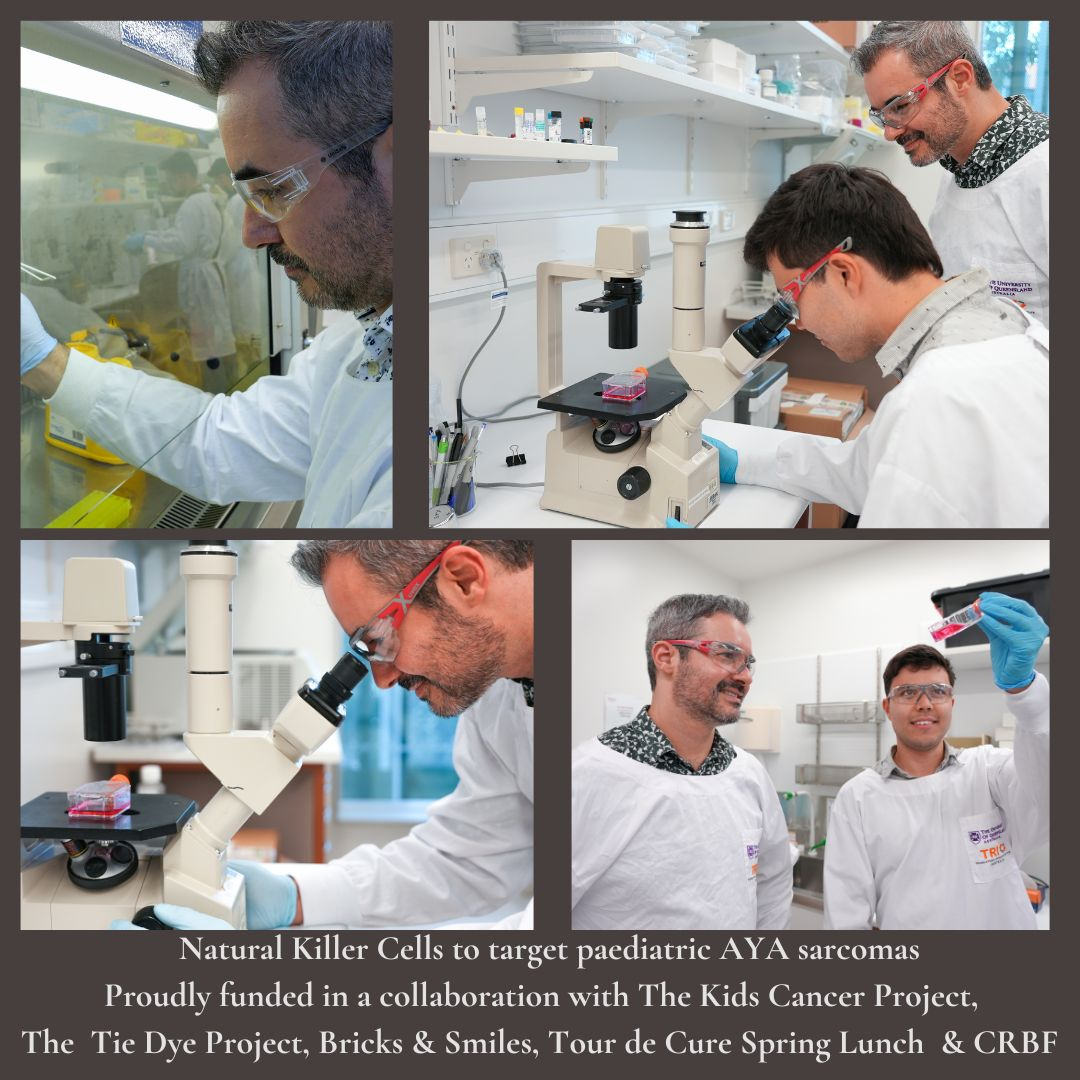Join Omico Australia’s free educational webinar this February to explore cancer and genomics. Learn from experts and patients about precision oncology, comprehensive genomic profiling (CGP), and treatment matching—advancing cancer care through innovation.
Omico Webinar Invite_6TH FEBRUARY 2025Enhancement of anti-sarcoma immunity
Enhancement of anti-sarcoma immunity by NK cells engineered with mRNA for expression of a EphA2-targeted CAR
A funding collaboration by several national sarcoma not for profit organisations, supporting the work of Professor Fernando Guimaraes and his team from the Ian Frazer Institute of Translational Research in Queensland, has led to a significant step forward in the search for a cure for some of the most sinister paediatric sarcomas. The Tie Dye Project, Richies Rainbows, The Kids Cancer Project, Bricks and Smiles – the Zach Minty Project, Tour de Cure Spring Lunch, CRBF, and ANZSA supported by generous donations from Kicking Goals for Xav, Stoney’s Steps Against Sarcoma and Stop Sarcoma
Paediatric sarcomas, including rhabdomyosarcoma, Ewing sarcoma and osteosarcoma, represent a group of malignancies that significantly contribute to cancer-related illness and mortality in children and young adults. These cancers share common challenges, including high rates of metastasis, recurrence or treatment resistance, leading to a 5-year survival rate of approximately 20% for patients with advanced disease stages.
Despite the critical need, therapeutic advancements have been limited over the past three decades. The advent of chimeric antigen receptor (CAR)-based immunotherapies offers a promising avenue for novel treatments. However, CAR-T cells have faced significant challenges and limited success in treating solid tumours due to issues such as poor tumour infiltration, immunosuppressive tumour microenvironments and off-target effects. In contrast, the adaptation of CAR technology for natural killer cells has demonstrated potential in both haematological (blood) and solid tumours (A solid tumor is a mass of solid cancer cells that grows in organ systems and can appear anywhere in the body), suggesting a new therapeutic strategy for paediatric sarcomas.
In a paper published 6th December, 2024 in the academic publisher, Wiley Clinical Research Journal, preliminary findings provide a foundational basis for the clinical evaluation of EphA2-targeted CAR-NK cell therapy across a spectrum of paediatric sarcomas. The enhanced anti-tumour effects observed in vitro/vivo suggests potential
for improved therapeutic outcomes in hard-to-cure paediatric sarcomas.
Professor Fernando Guamaeres from the Ian Frazer Institute of Translational Research, said “Our latest research focused on reprogramming a type of immune cell, called a natural killer (NK) cell, to target and eliminate aggressive paediatric sarcoma cancers. These engineered cells showed outstanding ability to kill sarcoma cells in both laboratory experiments and early animal studies. This brings us one step closer to developing a new therapy for young patients facing these challenging cancers.
Right now, we’re starting to focus on the next phase: preparing for future clinical trials. It’s an exciting time, and support from donors is crucial as we work to turn this research into real, impactful treatments.”
To read more about this exciting development go to
Clinical Translational Med - 2025 - Lam - Enhancement of anti‐sarcoma immunity by NK cells engineered with mRNA for

